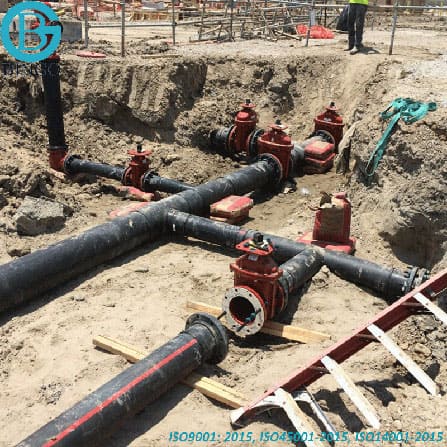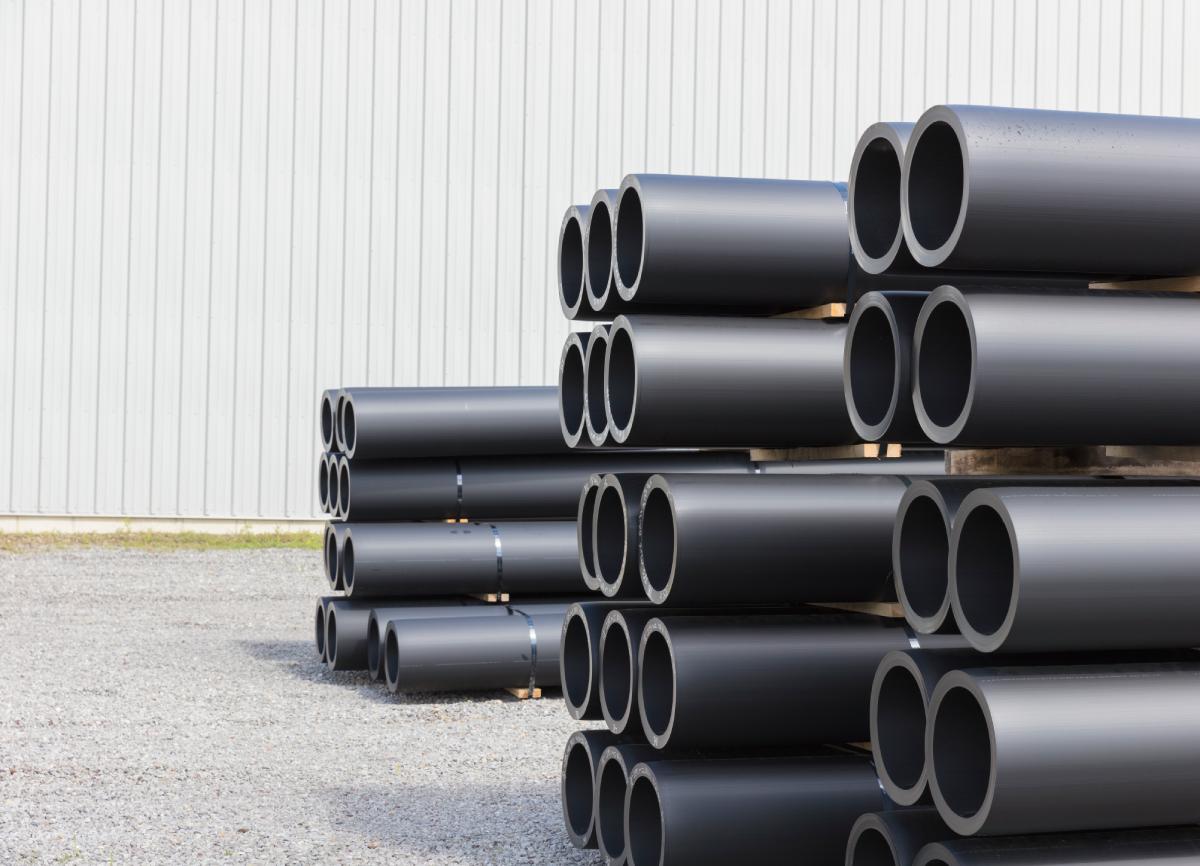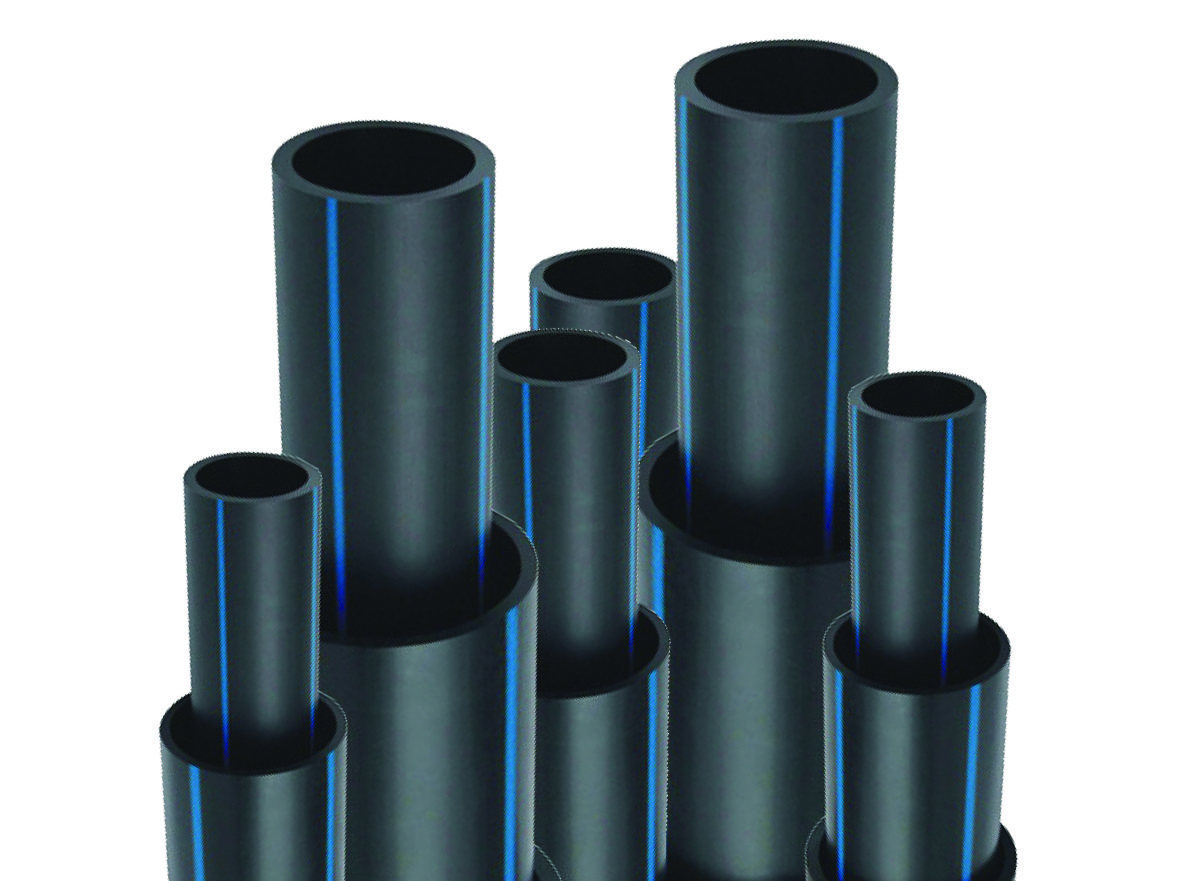Discovering the Leading Pipeline Manufacturers: Top Quality, Reliability, and Development
The pipeline manufacturing market stands at the crossway of development, high quality, and dependability, driven by leading companies such as Tenaris and Vallourec. These suppliers are not just devoted to creating high-performance materials yet are also introducing sustainable methods that resolve modern environmental problems (Pipeline Manufacturer). As we take a look at the standards that define excellence in pipeline solutions, it comes to be noticeable that the landscape is quickly advancing. What particular developments are arising, and just how are these advancements shaping the future of pipeline infrastructure? The solutions might redefine industry requirements in ways that are not yet totally recognized
Leading Manufacturers Overview
In the domain name of pipeline manufacturing, a number of principals arise as leaders, each adding significantly to the sector's landscape. Business such as Tenaris, Vallourec, and JFE Steel have developed themselves as frontrunners by constantly supplying top notch products that fulfill rigorous sector standards. Tenaris, renowned for its innovative solutions, focuses on seamless and bonded pipelines, catering primarily to the oil and gas sector. Vallourec, a French multinational, concentrates on the manufacturing of premium tubular options, highlighting sustainability and advanced technology in its manufacturing processes.
JFE Steel, a major Japanese manufacturer, is recognized for its considerable variety of steel pipelines, specifically those utilized in energy and facilities projects. Their dedication to research and development has actually enabled them to generate high-performance materials that withstand severe ecological problems. Additionally, business like U.S. Steel and National Oilwell Varco have actually expanded their market visibility by diversifying their item offerings and improving functional performances.
These leading makers not just dominate the marketplace but additionally drive advancement within the market, setting criteria for top quality and dependability that gamers aim to achieve. Their contributions are essential for fulfilling the enhancing demand for durable and effective pipeline solutions worldwide.
Criteria for High Quality Assessment
Quality analysis in pipeline manufacturing depends upon two essential standards: material toughness requirements and making process performance. Ensuring that products satisfy strenuous sturdiness standards is vital for the long life and dependability of pipes. Additionally, enhancing the manufacturing procedure can improve productivity while preserving excellent quality, inevitably impacting overall efficiency and security.
Product Sturdiness Standards
Assuring the durability and dependability of pipeline products is essential for keeping framework honesty and functional effectiveness. Material durability requirements play a crucial role in reviewing the high quality of pipelines, determining the efficiency and lifespan of the products used in building. Manufacturers need to follow a variety of strenuous standards, consisting of those set by organizations such as ASTM International and the American Oil Institute (API)
These requirements assess different aspects, consisting of corrosion resistance, tensile toughness, and fatigue efficiency. Pipes utilized in corrosive settings call for products that can withstand chemical destruction, while those subjected to high-pressure problems have to show outstanding tensile stamina.
Furthermore, variables such as temperature variations and ecological problems have to be taken into consideration, as these can considerably affect product actions in time. Manufacturers commonly use advanced testing approaches, including increased aging tests, to simulate long-lasting wear and warranty that materials meet or exceed industry standards.
Manufacturing Process Effectiveness
Manufacturers' ability to optimize manufacturing procedure performance is vital for producing high-quality pipelines that meet strict industry requirements. Effectiveness in producing straight affects expense monitoring, production timelines, and overall product stability. To accomplish this, leading pipeline producers carry out innovative methods such as lean manufacturing, automation, and real-time data analytics.
Lean producing concepts are necessary in reducing waste and maximizing source application. By simplifying procedures and removing redundancies, producers can enhance efficiency while making sure consistent high quality. Automation technologies, including robotics and computer mathematical control (CNC) makers, play an essential function in improving precision and minimizing human error, consequently elevating the dependability of the end product.
Furthermore, making use of real-time information analytics enables producers to monitor manufacturing procedures continually, enabling them to determine bottlenecks and make prompt adjustments. This proactive method not only boosts efficiency but also sustains quality control procedures by making sure compliance with governing criteria.
Dependability in Pipeline Solutions
Reliability in pipeline services is vital, as it straight impacts the safety and security and performance of fluid transport systems. Trick aspects include the sturdiness of products used, adherence to extensive screening and qualification standards, and the unification of cutting-edge material services that improve efficiency. Recognizing these elements is necessary for suppliers intending to deliver reliable pipeline infrastructure.
Value of Longevity
Accomplishing durability in pipeline remedies is important, as it straight affects the long-term efficiency and safety of facilities. Durable pipelines are necessary for reducing maintenance prices and minimizing the chance of disastrous failings. This dependability is specifically important in markets such as oil and gas, water, and wastewater management, where the repercussions of pipeline failing can be severe, both economically and eco.
The products and making processes utilized by pipeline producers play a significant role in identifying the resilience of the end product. Making use of top quality raw materials, progressed innovations, and innovative design concepts ensures that pipelines can withstand numerous stress factors, including pressure fluctuations, temperature variations, and destructive settings.
Moreover, the toughness of pipes is very closely connected to their capacity to withstand exterior variables such as dirt motion, seismic task, and chemical direct exposures. Reliable rust security methods, such as coatings and cathodic protection, further improve the long life of pipelines, guarding them against damage in time.
Spending in sturdy pipeline options eventually equates to enhanced operational efficiency, lowered downtime, and boosted safety, affirming the critical importance of durability in modern-day pipeline manufacturing.
Checking and Qualification Criteria
In the domain name of pipeline remedies, strenuous screening and certification criteria are crucial to ensure the integrity and security of framework. These requirements function as benchmarks for assessing the performance and toughness of pipeline products and systems, verifying they fulfill details governing and industry requirements.
Testing procedures normally incorporate numerous methodologies, including stress testing, hydrostatic evaluations, and non-destructive screening techniques. These assessments are important for determining prospective weaknesses or problems in the products before they are deployed in real-world applications. In addition, accreditation by identified organizations assurances that manufacturers abide by developed guidelines, which promotes trust fund among stakeholders, consisting of service providers, end-users, and designers.
Several top pipeline manufacturers participate in continual tracking and enhancement of their screening methods to adjust to developing market criteria and technical advancements. Compliance with standards such as ASTM, ASME, and ISO not only improves product dependability however additionally decreases the danger of ecological events related to pipeline failures.
Cutting-edge Material Solutions
The growth of innovative product remedies has actually changed the landscape of pipeline manufacturing, boosting both efficiency and resilience. Advanced materials such as high-density polyethylene (HDPE), cross-linked polyethylene (PEX), and composite materials have actually become game-changers, supplying exceptional resistance to deterioration, temperature changes, and stress variations. These materials not only extend the life expectancy of pipes however additionally lower maintenance prices, guaranteeing dependable long-term performance.
Manufacturers are progressively adopting clever materials that incorporate sensing units for real-time tracking. This innovation enables aggressive upkeep, considerably boosting dependability by discovering leaks or structural weaknesses prior to they rise right into vital failings. The assimilation of nanotechnology has actually additionally led to the growth of coverings that improve the toughness of pipes versus abrasion and chemical direct exposure.
Sustainability is another essential focus, with producers checking out bio-based composites and recyclable materials that decrease environmental impact. As regulative standards remain to advance, the focus on ingenious material services comes to be critical in conference strict safety and ecological needs. Eventually, these innovations not only improve the dependability of pipeline systems however also add to the overall effectiveness and sustainability of power transportation infrastructures.
Innovations in Pipeline Modern Technology
Technologies in pipeline innovation are transforming the industry by boosting performance, security, and environmental sustainability. Current improvements concentrate on clever pipeline systems that make use of sensing units and IoT modern technology to keep an eye on conditions in actual time, allowing positive upkeep and lowering the threat of failings. These systems can spot leakages, pressure modifications, and other anomalies, permitting quick feedback and lessening ecological influence.
In addition, the growth of innovative products, such as composite and corrosion-resistant alloys, considerably expands the lifespan and reliability of pipes. Pipeline Manufacturer (HDPE Pipe Manufacturing Texas). These products minimize upkeep prices and enhance performance in severe atmospheres, making them ideal for gas, water, and oil transportation
Automation and robotics are playing a vital function in pipeline building and construction and examination. Drones and robot tools facilitate studies and assessments of hard-to-reach areas, guaranteeing comprehensive inspections without endangering security.
Moreover, cutting-edge styles, such as modular pipeline systems, allow for better versatility in installment and adjustment, accommodating the vibrant needs of the energy field. With each other, these technical improvements not only improve functional performance however also add to a much more resistant and lasting pipeline infrastructure, paving the way for a greener future.
Instance Studies of Success
Across various fields, successful implementations of innovative pipeline innovations demonstrate substantial improvements in operational performance and safety. One noteworthy instance is the release of smart pipeline tracking systems in the oil and gas sector, where real-time information analytics have decreased leakage discovery times by over 50%. This not only decreases environmental threats however additionally enhances the general honesty of pipeline infrastructure.

Additionally, a major manufacturer executed robotic evaluation innovations in its pipeline maintenance procedures, causing a 40% enhancement in evaluation efficiency. This approach has streamlined maintenance timetables and substantially decreased downtime.
These case researches highlight exactly how top pipeline suppliers are leveraging innovative technologies to cultivate dependability and operational excellence, eventually setting brand-new requirements for the sector. As these successes continue to unravel, they pave the means for further developments in pipeline manufacturing and management.

Environmental Sustainability Practices
Frequently, pipeline manufacturers are focusing on ecological sustainability techniques to reduce their environmental impact and boost the longevity of their items. This dedication is mirrored in various initiatives aimed at minimizing waste, saving power, and using lasting products throughout the manufacturing procedure.

Lots of suppliers are taking on innovative technologies that minimize emissions and energy consumption. For example, the assimilation of automated systems and energy-efficient equipment assists enhance production while reducing reliance on fossil fuels. Additionally, companies are progressively turning to environment-friendly materials, such as recycled metals and bioplastics, which not only minimize the ecological impact but likewise advertise a round economy.
Additionally, pipeline makers are applying strenuous lifecycle analyses to examine the environmental ramifications of their products from creation to disposal. This strategy enables them to recognize chances for improvement and foster liable sourcing and waste administration practices.
Collaboration with ecological organizations further improves these efforts, as suppliers seek to straighten their operations with international sustainability objectives. Ultimately, these ecological sustainability practices not just add to a much healthier planet but additionally position suppliers as responsible leaders in the sector, appealing to environmentally aware stakeholders and clients alike.
Future Trends in Pipeline Manufacturing
As the demand for more effective and lasting framework grows, pipeline manufacturing is positioned for considerable advancements that will certainly improve the market. Trick trends expected in the coming years consist of the integration of sophisticated products, such as composite and corrosion-resistant alloys, which improve sturdiness while decreasing environmental effect. Manufacturers are likewise anticipated to adopt innovative production methods, like additive manufacturing and automation, to streamline procedures, reduce waste, and reduced costs.
Moreover, the rise of smart pipeline modern technologies, including sensors and IoT gadgets, will certainly allow real-time tracking and predictive upkeep, thereby boosting safety and security and functional efficiency. This electronic improvement will certainly not only maximize resource administration however also promote compliance with strict environmental regulations.
Sustainability will certainly continue to be a central focus, driving manufacturers to purchase environment-friendly techniques, including energy-efficient production approaches and reusing efforts. As the international emphasis on climate adjustment escalates, pipeline makers will certainly need to adjust by developing solutions that fulfill both ecological and financial demands.
Often Asked Concerns

What Industries Primarily Utilize Pipeline Products From These Manufacturers?
Pipeline products are mainly made use of in sectors such as oil and wastewater, gas and water monitoring, chemical building, mining, and handling. These sectors rely upon effective, resilient, and risk-free transport of liquids and materials.
Just How Do Manufacturers Guarantee Conformity With International Pipeline Criteria?
Manufacturers guarantee conformity with international pipeline requirements by applying rigorous high quality control procedures, conducting normal assessments, adhering to well-known regulative frameworks, and purchasing staff member training to promote understanding and understanding of security and high quality requirements.
What Is the Ordinary Life-span of Pipelines From Leading Manufacturers?
The typical life expectancy of pipes from leading manufacturers typically varies from 30 to 100 years, depending upon product, ecological conditions, and maintenance practices. HDPE Pipe Supplies Midland TX. Normal inspections and adherence to market requirements noticeably influence durability and performance
Exist Certifications Details to Pipeline Manufacturing High Quality?
Yes, numerous qualifications exist for pipeline manufacturing top quality, including ISO 9001 for quality management systems and API criteria certain to pipes. These certifications guarantee adherence to extensive security, performance, and ecological requirements within the market.
Exactly How Do Manufacturers Take Care Of Pipeline Upkeep and Repair Works?
Manufacturers commonly execute a positive upkeep approach that consists of normal evaluations, keeping an eye on systems for early discovery of issues, and an organized repair service procedure. This technique guarantees pipeline honesty, decreases downtime, and enhances general functional effectiveness.
Quality evaluation in pipeline manufacturing hinges on 2 essential requirements: product toughness criteria and producing process effectiveness - Pipeline Manufacturer. Material sturdiness standards play an Find Out More essential role in evaluating the quality of pipes, determining the efficiency and life-span of the products made use of in building and construction. The materials and making procedures utilized by pipeline manufacturers play a significant function in figuring out the sturdiness of the final item. The ordinary lifespan of pipelines from leading makers commonly varies from 30 to 100 years, depending on material, ecological problems, and upkeep methods. Yes, different certifications exist for pipeline manufacturing top quality, consisting of ISO 9001 for top quality administration systems and API criteria certain to pipes